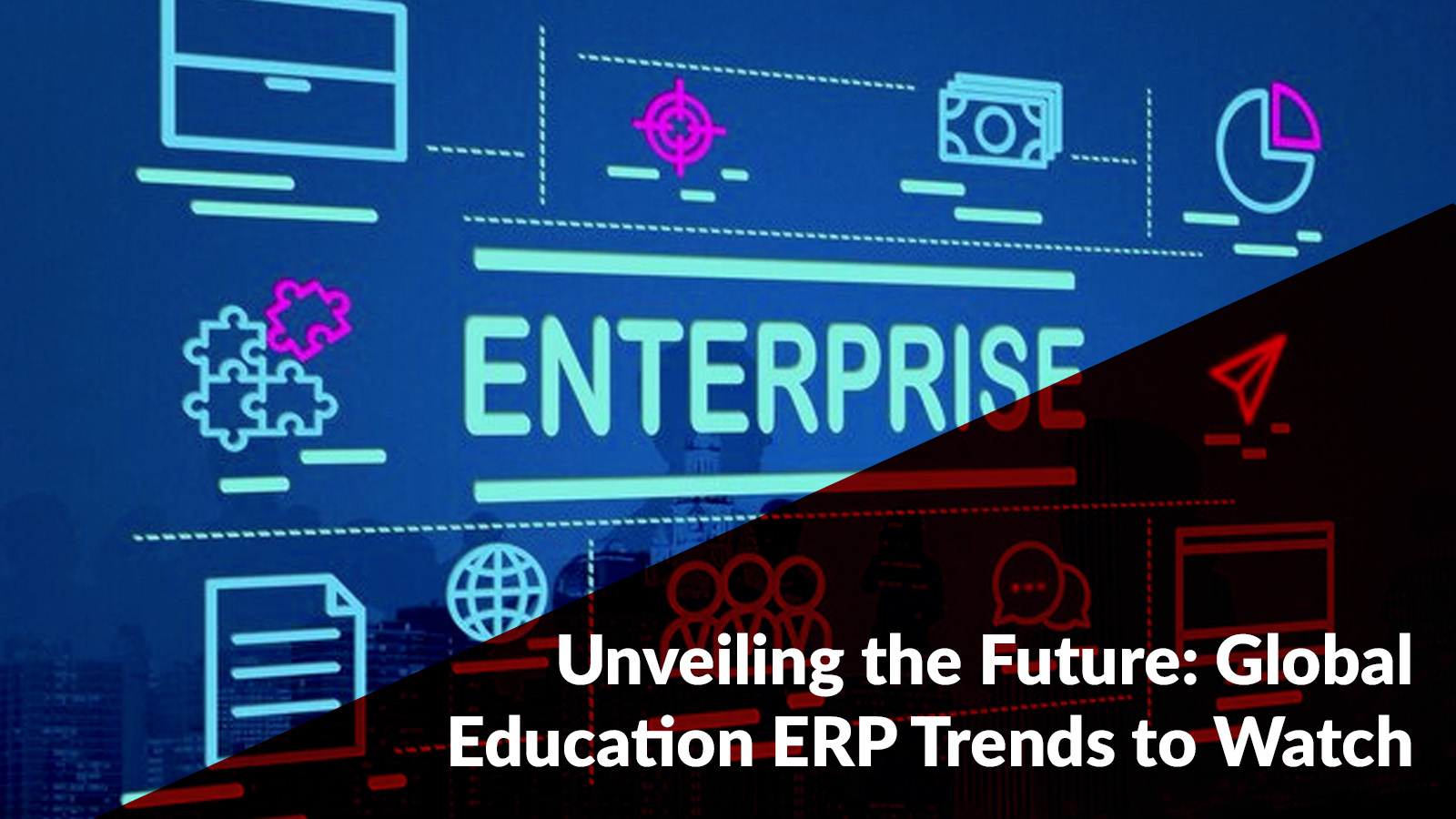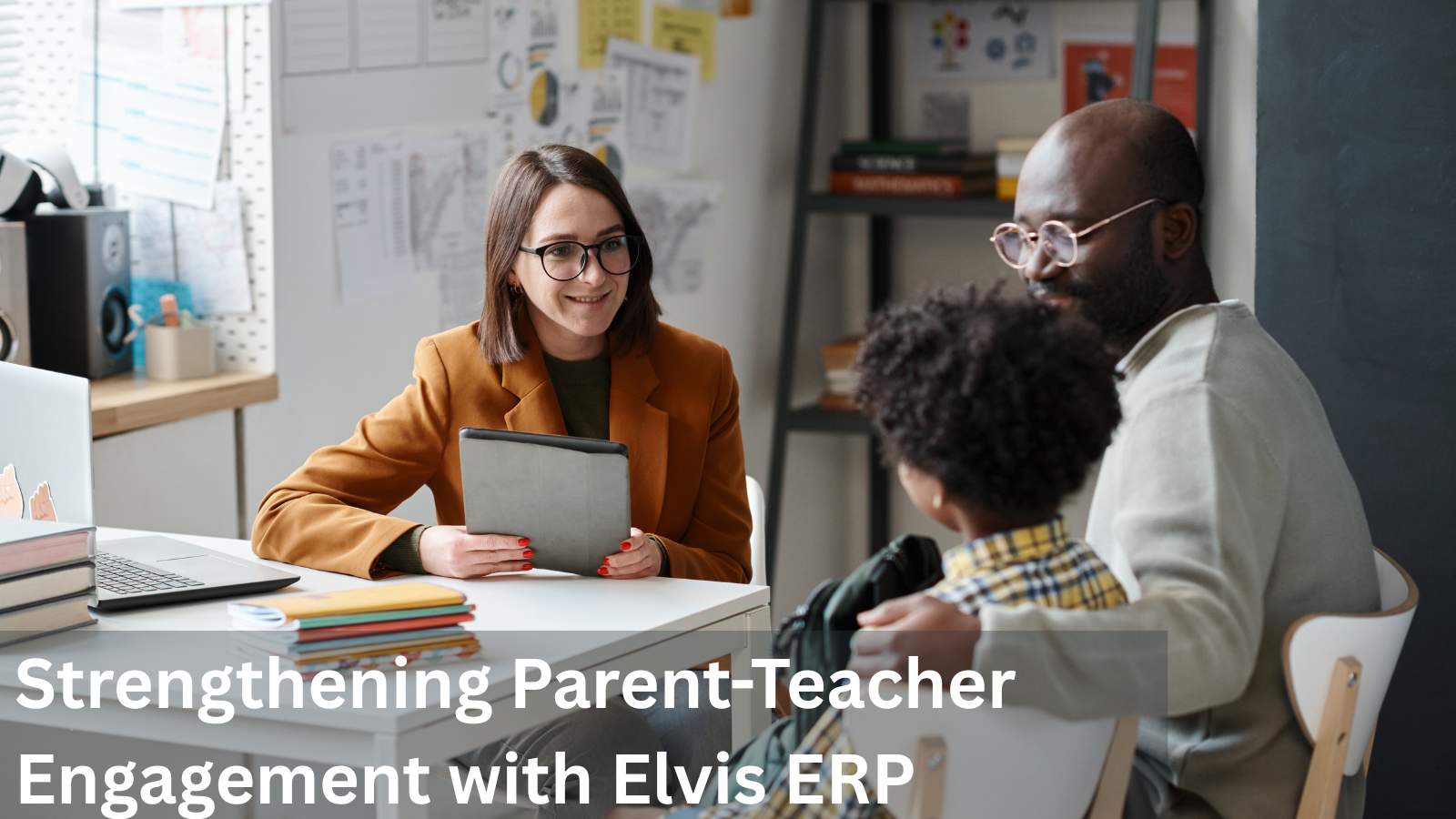Introduction
Education is evolving at an unprecedented pace, and at the core of this revolution is the integration of technology, particularly the emergence of Enterprise Resource Planning (ERP) systems.
In this blog post, we look into the Future Trends shaping Global Education ERP.
Historical Overview of ERP in Education
ERP in education has come a long way since its introduction. Initially designed for business processes, ERP systems gradually found their way into educational institutions. Over the years, these systems have evolved to cater specifically to the unique needs of the education sector.
The adoption of Education ERP systems is rapidly gaining momentum, providing educational institutions with streamlined processes and enhanced efficiency. As we peer into the future, it becomes evident that digital transformation is not merely a trend but a necessity.
The Rise of Cloud-Based Education ERP Solutions
One of the important trends shaping the future of education ERP is the adoption of cloud-based solutions. The cloud offers scalability, accessibility, and cost-effectiveness. According to recent statistics, the global cloud computing in education market is expected to reach $25.36 billion by 2026, signifying a compound annual growth rate (CAGR) of 18.3%.
This shift towards cloud-based solutions is driven by the need for real-time collaboration, data accessibility, and seamless integration across various educational functions.
AI and Machine Learning Revolutionizing Educational ERP
Artificial Intelligence (AI) and Machine Learning (ML) are not just buzzwords; they empower innovation in education ERP systems. These technologies enable predictive analytics, personalized learning, and automated administrative tasks.
Imagine an ERP system that tailors educational content based on individual learning styles and preferences. AI and ML make this a reality by analyzing data patterns and adapting educational materials to suit the unique needs of each student. This enhances engagement, retention, and overall academic performance.
Blockchain: Ensuring Data Security in Education ERP
As education ERP systems handle vast amounts of sensitive data, ensuring robust security measures is crucial. Blockchain technology is emerging as a game-changer in this regard.
Blockchain’s decentralized and tamper-proof nature makes it an ideal solution for safeguarding academic records. By leveraging blockchain in education ERPs, institutions can guarantee that sensitive data remains secure and authentic, reducing the risks of data breaches and fraud.
The Role of Virtual Reality (VR) and Augmented Reality (AR) in Education ERP
The integration of Virtual Reality (VR) and Augmented Reality (AR) into education ERP systems is poised to redefine the learning experience. These immersive technologies go beyond traditional methods, offering students interactive and engaging educational content.
With VR and AR, students are no longer bound by the limitations of physical classrooms. Imagine a biology class where students explore human anatomy in a virtual environment or a history lesson that takes them back in time through augmented reality. The possibilities are limitless, providing a richer and more memorable learning experience.
Conclusion
The future of Global Education ERP is undoubtedly exciting, with technological advancements moving toward innovation and efficiency. As institutions worldwide embrace cloud-based solutions, AI, ML, blockchain, VR, and AR, the educational landscape is undergoing a significant transformation.
The integration of these technologies into education ERP systems is a necessity to meet the demands of a rapidly evolving world. The future belongs to those who embrace change, and in the realm of education, the future is now.
Frequently Asked Questions (FAQs)
What is an ERP in the context of education?
Enterprise Resource Planning (ERP) in education refers to integrated software solutions designed to streamline and manage various administrative and academic processes within educational institutions. These systems aim to enhance efficiency, data accuracy, and overall performance across diverse functions like student information management, finance, human resources, and more.
Why is there a growing need for ERP systems in the education sector?
ERP systems offer a centralized platform to manage diverse functions efficiently. With the increasing demand for data-driven decision-making, institutions are adopting ERP solutions to enhance productivity, reduce manual errors, and provide a seamless experience for students, faculty, and staff.
What are the key trends shaping the future of education ERP?
Several trends are shaping the future of education ERP, including cloud-based solutions, AI and machine learning integration, mobile accessibility, and a focus on user experience. Cloud-based ERPs offer scalability and cost-effectiveness, while AI and machine learning enhance data analysis and decision-making capabilities.
How do ERP systems contribute to data-driven decision-making in education?
Education ERPs collect and analyze data from various sources, providing valuable insights for informed decision-making. From student performance analytics to resource allocation optimization, these systems empower educational institutions to make data-driven decisions that can enhance overall efficiency and outcomes.
What impact does mobile accessibility have on education ERP systems?
Mobile accessibility is a crucial trend in education ERP, allowing stakeholders to access information anytime, anywhere. This not only improves the user experience but also enables real-time collaboration among students, faculty, and administrators. Mobile ERP solutions are instrumental in creating a connected and dynamic educational environment.
Are there any security concerns associated with implementing ERP systems in education?
Security is a top priority in education ERP implementation. Institutions must ensure robust data encryption, secure access controls, and regular system audits to safeguard sensitive information. Choosing reputable ERP providers with a proven track record in security is essential to mitigate potential risks.
How do ERP systems contribute to improving the learning experience for students?
Education ERPs contribute to a better learning experience by providing students with easy access to course materials, personalized learning paths, and real-time feedback. These systems also facilitate communication between students and faculty, fostering a collaborative and engaging educational environment.
Can small educational institutions benefit from ERP systems, or are they primarily designed for larger organizations?
ERP systems are designed to cater to the needs of educational institutions of all sizes. While larger organizations may have more extensive and complex requirements, there are ERP solutions tailored for smaller institutions. Implementing an ERP system can benefit small institutions by streamlining processes, enhancing efficiency, and providing a scalable solution for future growth.
How can institutions ensure a smooth transition during the implementation of an education ERP system?
A successful ERP implementation requires careful planning, stakeholder engagement, and thorough training. Institutions should conduct a detailed needs assessment, involve key stakeholders in the decision-making process, and provide comprehensive training to users. Collaborating closely with the ERP provider and having a dedicated implementation team can contribute to a smoother transition.
What measurable benefits can educational institutions expect from implementing ERP systems?
The benefits of implementing education ERP systems are measurable and diverse. These include improved operational efficiency, reduced administrative costs, enhanced data accuracy, better decision-making through data insights, increased collaboration, and a positive impact on the overall learning experience for students.








